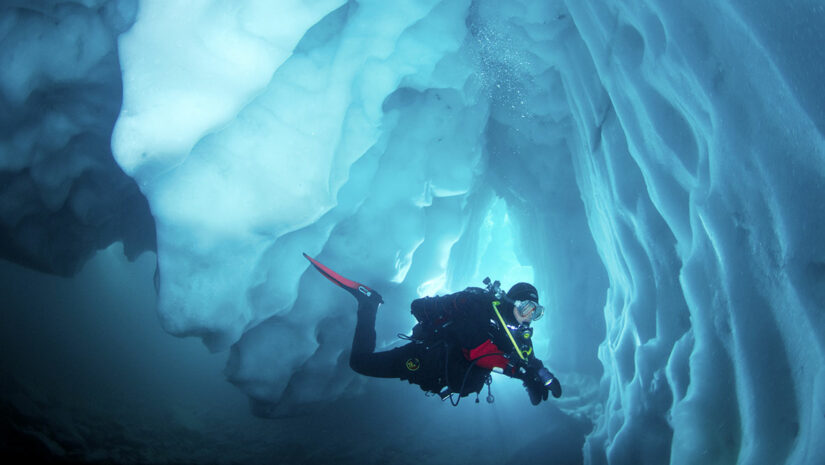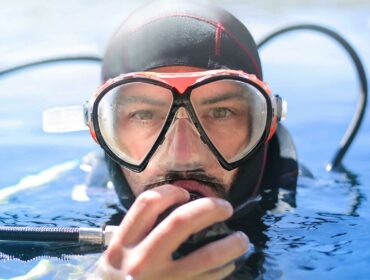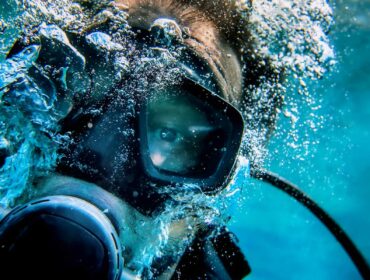Have you ever noticed yourself start shivering, or feeling cold while Scuba Diving even in warm tropical waters? The water that we dive in is almost always at a lesser temperature than that of our bodies; and water conducts/draws away heat from a divers body almost 25 times more efficiently than air, which is why , even after a short dive in seemly mild water temperatures, it is possible to get mild hypothermia.
Take for example a boiled egg that has just been boiled, and place one in a bowl of cool water, and another left on the counter to cool down for the same period of time. You will instantly notice that the egg immersed in water will have cooled down much quicker than the one left on the counter. This is the same effect that water has on our bodies while Scuba diving.
Hypothermia is the condition in which the bodies temperature drops below that required for normal metabolism and body functions. When the body is exposed to cold, and it cannot replenish the heat being lost from the core body temperature through internal mechanisms, hypothermia is said to set in.
The severity of Hypothermia based on symptoms and signs are classified into three stages:
Stage 1 Hypothermia: when the body temperature drops by 1–2 °C (1.8–3.6 °F) below normal temperature (down to 35–37 °C or 95–98.6 °F). Mild to strong shivering occurs. The person is unable to perform complex tasks, extremities such as hands become numb, and breathing becomes quick and shallow.
Stage 2 Hypothermia: Body temperature drops by 2–4 °C (3.8–7.6 °F) below normal temperature (33–35 °C or 91–94.8 °F). Shivering becomes more violent, and a person becomes disoriented or un-coordinated. The body becomes pale, lips, ear, toes fingers become blue as the body diverts blood to the vital organs.
Stage 3 Hypothermia: Body temperature drops below approximately 32 °C (89.6 °F). the bodies metabolic processes shut down, as organs begin to fail. The people is unable to co-ordinate or speak, and organ failure eventually leads to cardiac arrest and death.
Divers should always be aware of the symptoms and onset of hypothermia and should minimize the risk by wearing adequate exposure protection, such as a wetsuit or drysuit while diving in colder waters. Stage 1 of hypothermia can be treated through first aid, and keeping the affected person warm, however stage 2 and 3 of hypothermia will require immediate hospitalization.
Even while in warm waters, a diver should ensure that he wears a wet-suit at least. A wetsuit made of neoprene has small air pockets/bubbles in the material that provide an insulation of air and prevent rapid heat loss. They also retain a layer of water inside the suit that acts as a further insulation from the colder water outside the suit. Thicker wetsuits are available for colder waters. Hoods, gloves and booties are also crucial for good thermal protection when diving in cold waters, and protect your extremities where hypothermia and frost bite can first set in.
If you begin shivering when on a dive, it is a always a good idea to call it a day and surface, to ensure that your symptoms do not worsen. Many divers ignore the warning signs, especially in seemingly mild waters, and will continue diving as long as there is air in their tanks. If you see your dive buddy shivering vigorously while underwater, make sure that you end the dive and surface even if you are not feeling as cold.




